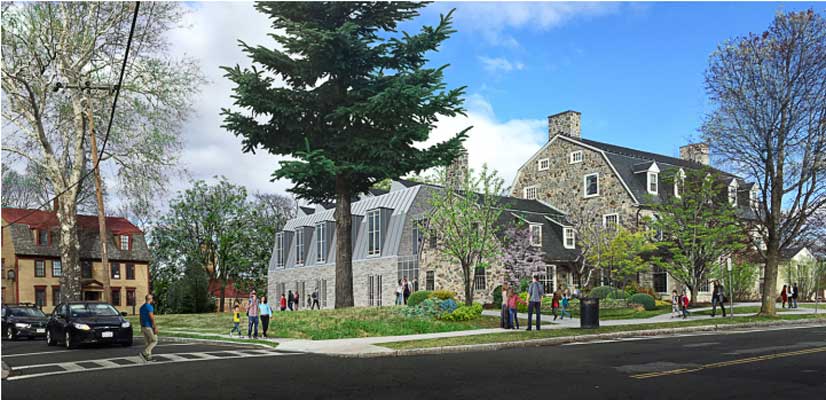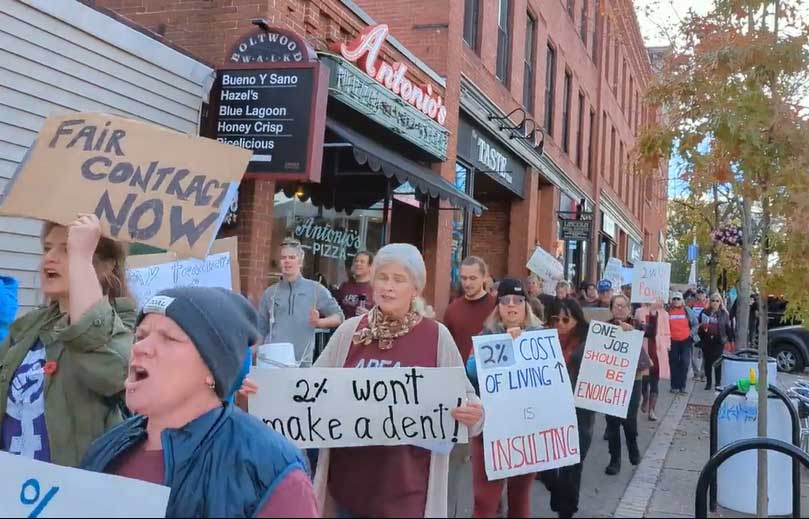Councilors Double Down On Library Funding While School (And Taxpayers) Left Out In The Cold

Photo: https://www.joneslibrary.org/
Jones Library News Highlights For The Week Of October 17, 2022
Town Council Seeks State Bailout For Foundering Library Project
After voting 8-5 to continue pursuing the financially-challenged $50-million Jones Library renovation-expansion, the Amherst Town Council has set its sights on closing the project’s budget gap, estimated to be more than $13 million. The project is now set to continue into early 2024 when construction bids will be unsealed, and the viability of continuing can be assessed. During this time the town is expected to incur $1.8 million in additional design fees.
The Jones Library Board of Trustees and town councilors supporting the project are hoping to benefit from a FY22 state budget surplus and unspent American Rescue Plan Act (ARPA) funds, estimated to total $2.3 billion. On October 3, the Town Council weighed and approved sending a letter to Massachusetts legislators appealing for $87.7 million in ARPA money to be allocated to the Massachusetts Board of Library Commissioners (MBLC) to bridge the cost gaps being suffered by current MBLC-funded library building projects. Eleven other towns with ongoing library projects have allied with Amherst in this request.
Town Councilor Pat DeAngelis raised the question of whether Amherst might be losing out on ARPA funds for Amherst’s $100-million elementary school replacement project by focusing solely on help for the Library.
Councilor Jennifer Taub pressed further and asked if the town could request ARPA funding for school construction through the Massachusetts School Building Authority (MSBA), like it is seeking library funds through the MBLC.
Council President Lynn Griesemer replied, “The funding for the schools comes from sales tax. That does not prevent the MSBA from seeking additional funding. However, at this point, we are not aware that they are seeking additional funding.”
The questions of whether the library and school projects might both end up competing for the same limited ARPA funds, and whether the Council has any plans to pursue inflation-related funds for the Elementary School were left unclarified.
Prioritizing state funding for the library over the elementary school has serious implications for local taxpayers. In a presentation to the Finance Committee on October 18, town Finance Director Sean Mangano described possible models the town might use to pay for the four planned capital projects – the library, the elementary school, the central fire station and the DPW. All models assume that the school project will be funded entirely by an MSBA grant plus a Proposition 2½ property tax override, anticipated to raise $65 million.
A town-wide override vote is expected to be scheduled for May 2023. Putting a successful override at risk is the reality that Amherst residents now bear the sixth highest property tax rate in Massachusetts, and residents are suffering from a U.S. economy on the verge of recession. Town leaders have not announced what will happen to the school building project and its predicted $35 million state grant if the override vote fails.
Resentment over eight town councilors’ determination to pursue the library project despite its multi-million-dollar budget gap has spilled over to the regional school district. Last Saturday on the Town Common the Amherst Pelham Education Association (APEA) staged a Rally for a Good Contract. Among the union’s requests are a living wage for paraeducators and a cost-of-living increase greater than 2%. They point out that the current inflation rate is 8.2%.
Alex Lopez, a paraeducator at Amherst’s Summit Academy and a town representative on the Jones Library Building Committee spoke of the difficulty paying the rising costs of childcare for his own children while he went to work with others’ children.
“When the Jones Library found out their cost estimate was millions of dollars beyond their budget,” he said, “the town was able to go to their state legislators and other regional partners to ensure the money was there to keep their promises to that building project. Yet they don’t have the will to find the money to keep their promises to our staff and students.”

